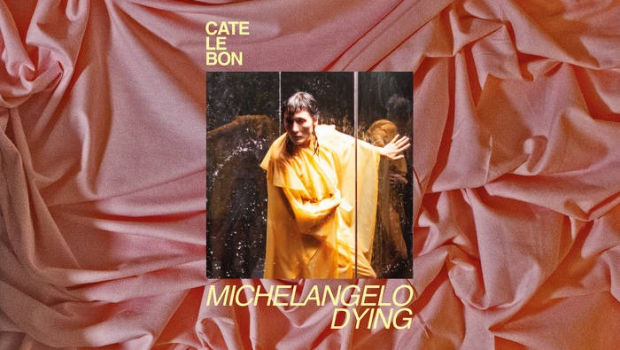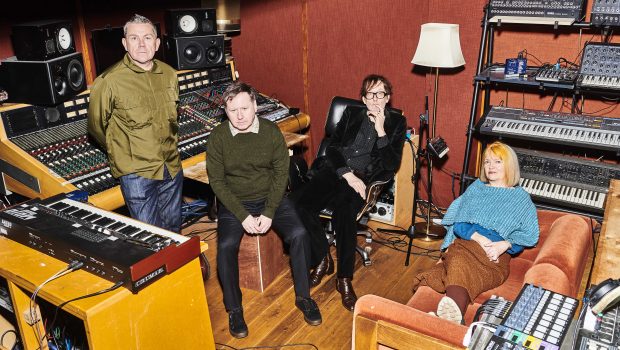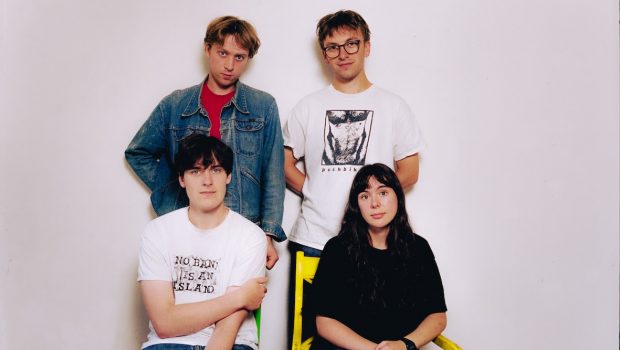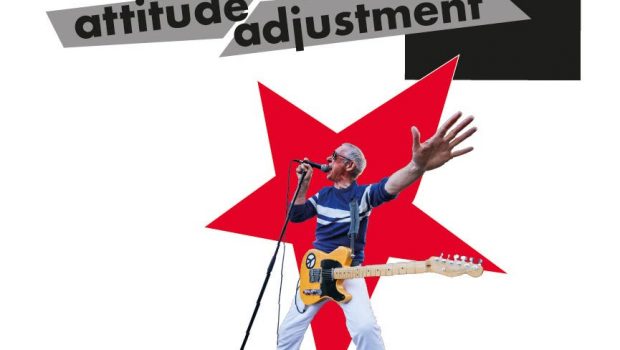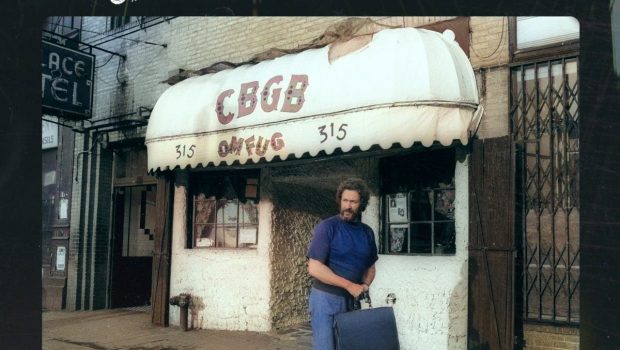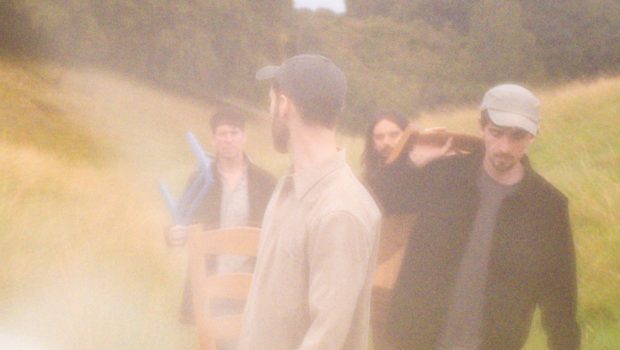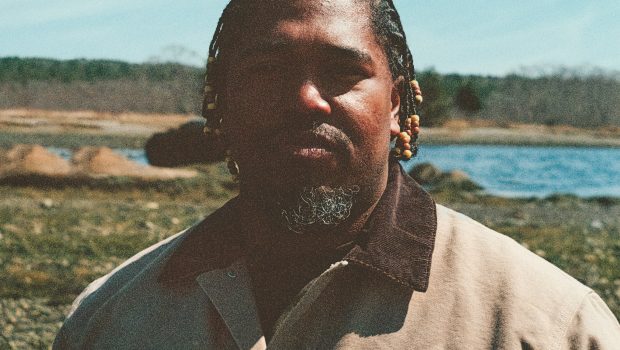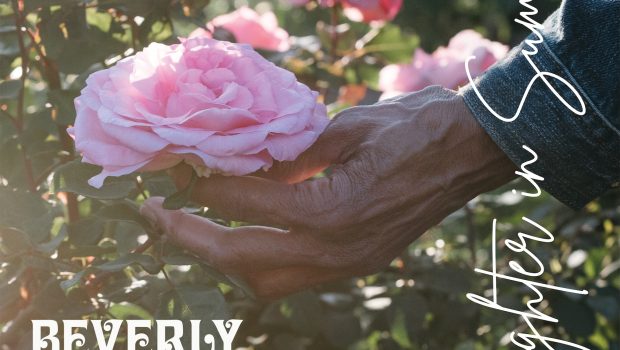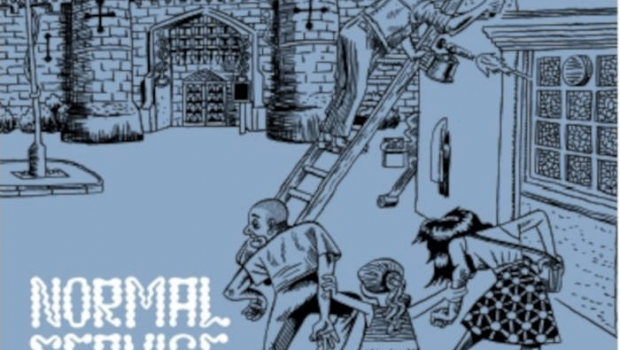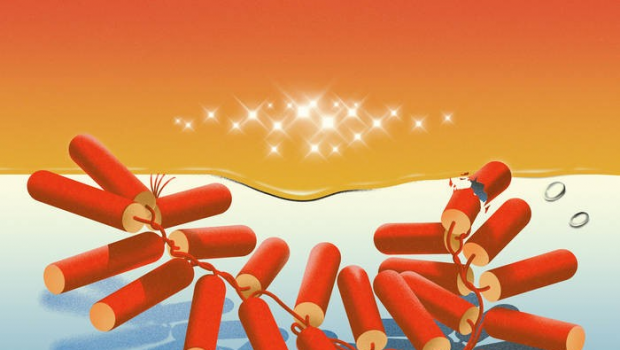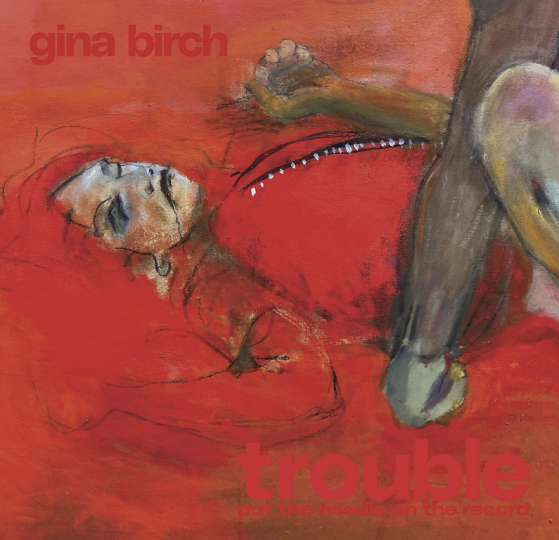 “My dad was in charge, and my mum never wanted to cause any trouble and, you know, was quite depressed and unfulfilled.” Many women who came of age in 1970s England will nod along when reading this description that Gina Birch, bassist of legendary post-punk band The Raincoats, gave some years ago about growing up. It was a man’s world and women were expected to keep quiet outside the kitchen.
“My dad was in charge, and my mum never wanted to cause any trouble and, you know, was quite depressed and unfulfilled.” Many women who came of age in 1970s England will nod along when reading this description that Gina Birch, bassist of legendary post-punk band The Raincoats, gave some years ago about growing up. It was a man’s world and women were expected to keep quiet outside the kitchen.
Unlike many of her contemporaries, Birch refused to accept this fate and used her family environment in Nottingham as a catapult to “break out of this because I’m not gonna be like that”. And break out she did, moving to London to study at Hornsey College of Art, where she co-founded The Raincoats in the late ‘70s. Their run of three albums between 1979 and 1984 earned them cult status, and, years or even decades later, admiration from artists like Kurt Cobain. Had it not been for his death, The Raincoats might have ended up touring with Nirvana. It wasn’t meant to be.
Instead, the band made another LP, Looking in the Shadows, released (and largely ignored) at the height of Britpop. Birch then went on to form The Hangovers, whose first and only album, Slow Dirty Tears, is a similarly overlooked record. Undeterred, Birch launched a solo career and put out record after record in the early noughties. Except she did no such thing. While she’s not one to twiddle her thumbs – besides being a musician, she’s also a painter, a video director and an installation artist – there was no solo album in sight for a long time.
Then in 2023, aged 67, Birch decided it was time for the songs she had been working on for two decades to see the light of day. Pundits concurred and rewarded her debut, I Play My Bass Loud, with glowing reviews. It was a feminist manifesto comprising songs that were equal parts rugged and refined; a rebellion against injustice, the patriarchy and the persecution of women. Two years on, her stance is just as uncompromising, and she still plays her bass loud. She’s not about to stop causing trouble either, as evidenced by her sophomore album.
Each of the 11 tracks on Trouble is a vignette that allows you a peek into the life of an artist who has nothing to hide and does not shy away from tackling topics most of her peers steer clear of. Take opener “I Thought I’d Live Forever”, driven by trip-hop beats and reggae low-ends, where she tells a story about quite literally losing her senses. “I can’t hear the whispers, I can’t hear the cutting” she sings, confronting aging and, ultimately, her own mortality. In spite of sounding like a desperate cry for help, the chorus has an uplifting quality to it, boosted by the life-affirming declaration “I wanna be alive”. Death will always win out, but what is there to do other than cling on to life, however discomforting?
Trouble poses many similar questions and while Birch seems more interested in asking than answering them, she urges you to think along. What is happiness? It can be both heartening and melancholy, like the song “Happiness”, influenced by late ‘60s spaced-out psychedelia. “Happiness…, it comes and goes,” she muses, surrounded by jangling tambourines and falsetto harmonies. You might catch yourself agreeing that happiness can be sunshine bursting right through you or a whirlpool of laughter.
When her mood is not so contemplative, Birch tends to cause trouble or salute those who do. The six-minute centerpiece “Causing Trouble” is a throwback to late 70s punk aesthetics, with her pulsing bass supported by a drum machine beat, reaching a crescendo halfway through: hundreds of names are read out in a celebration of defiance. Nina Simone, Joni Mitchell, Kate Bush, Elisabeth I, Mary Shelley, Yoko Ono… the list of women known for going against the grain goes on and on; several lists, in fact, blurring into each other and turning into a jubilant, rebellious mess topped off with blistering guitar solos.
Birch’s progressive politics are also on display on “Keep to the Left”, a dub-tinged electro track against the far-right, and on “Doom Monger”, a reggae song where the laid-back rhythm and the innocent-sounding delivery are in sharp contrast to the lyrics. Despite bashing “those crazy people screwing us more each day”, she voices the helplessness and fear caused by the world being “turned upside down”. You could argue that full-on punk songs might get the message across more effectively, but this idiosyncrasy is more fun.
Browsing the tracklist, you may wonder if “Cello Song (Tape Echo)” features an actual cello. It does and it’s gorgeous, complete with late-career Marianne Faithfull vibes. As established above, “Keep to the Left” has nothing to do with left-hand traffic, and if you expect “Hey Hey” to be a banger about, say, hanging out with friends or chatting up someone, you’ll be disappointed. Something of an unsettling dirge, it contains lines like “I’ve been holding it in for so long, I don’t think I can even begin, words stop inside my head” and, later on, features an orchestra whose sweeping strings swell as if they are in some grand historical drama.
“It’s a bit out there, a bit off the tracks, and I always like to go there,” Birch said about the album’s undertones that depict those moments and incidents in life she considers weird or absurd, even though others might find them sad or difficult. Sure, artists see things differently from most of us, but few have the talent to share their views in a way that is unpredictable, thought-provoking and a bit off the wall, all at the same time.
With Trouble, you don’t get platitudes, slogans or ideologies. You get bits of Birch herself. “I’m not writing an opus about one thing. I’m writing an opus about being me”, she said. Let’s hope she’s nowhere near done.
Gina Birch: Trouble – Out 11 July 2025 (Rough Trade)

